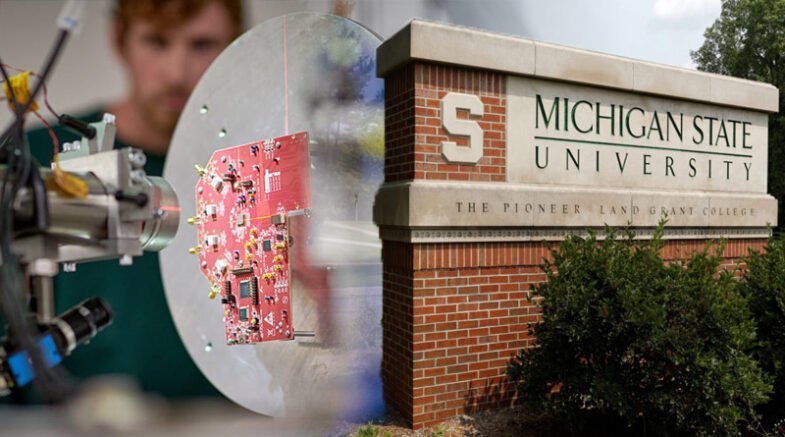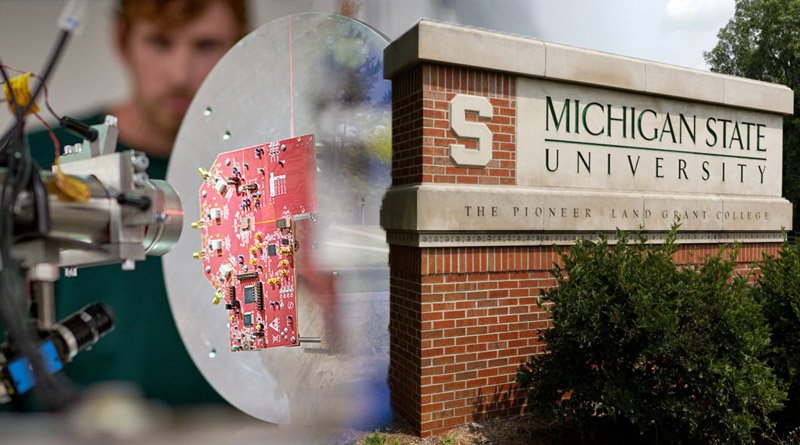According to Teresa K. Woodruff, “This new FRIB-adjacent facility at MSU will provide the United States with several thousand additional hours of capacity for chip testing annually.”

Michigan State University (MSU) will upgrade the K500 cyclotron and install it as the centre of a new chip-testing facility for cutting-edge microelectronics, including for space-based applications, using its 60 years of experience in accelerator-based nuclear physics.
The facility will be based at the Facility for Rare Isotope Beams and supported by a $14.2 million contract funded by the U.S. Department of Defense Test Resource Management Center (TRMC) and awarded through the U.S. Department of Defense Missile Defense Agency (MDA) (FRIB).
The facility will contribute to bridging the nation’s current testing capacity gap for cutting-edge microelectronics, such as those used in autonomous vehicles, 5/6G wireless technology, and commercial spaceflight.
A new chip-testing facility for next-generation semiconductor devices will be built at Michigan State University’s Facility for Rare Isotope Beams, with funding provided by the Test Resource Management Center and provided by the Department of Defense through a $14.2 million contract awarded by the Missile Defense Agency.
The K500, which burst onto the nuclear science scene 40 years ago, making history as the world’s first superconducting cyclotron, will perform what could be considered its third act at the new East Lansing facility.
According to MSU Interim President Teresa K. Woodruff, Ph.D., “This new FRIB-adjacent facility at MSU will provide the United States with several thousand additional hours of capacity for chip testing annually.”
“We are prepared to make use of the National Science Foundation‘s six-decade investment in basic nuclear science at MSU for a new goal that is essential to this crucial industry, to American competitiveness, and to national security.”
The MSU proposal for funding was in response to the 2018 National Academies report, “Testing at the Speed of Light,” which outlined a critical national shortfall in the testing capacity of space-bound electronic components.
This includes testing electronic components for use in space, where levels of ionising radiation are much higher than at the Earth’s surface and where devices must operate for years or even decades with little maintenance.
The K500’s most recent installment is expected to carry on MSU’s legacy of supporting disruptive innovation to produce novel physics hardware, which is then used to generate long-lasting and widespread benefits to support the country. Texas A&M University has a K500-like machine that is used for nuclear physics research.
The nation’s chip testing capacity for the next generation of semiconductor devices, including those used in applications like commercial spaceflight, 5G and 6G wireless technology, and autonomous vehicles, will be increased by thousands of hours annually thanks to the new facility.
MSU has been purposeful in leveraging its accelerator assets for new applications over the past 60 years, and this award enables them to continue that tradition while delivering on their mission of addressing societal problems.
The K500’s first act ushered in the superconducting cyclotron era for research with heavy ions. Act two followed a hiatus and refurbishment in the late 1990s for coupling with the more powerful K1200 cyclotron. The Coupled Cyclotron Facility (CCF) began operations in 2001 and was used until November 2020.
It enabled research with fast rare isotope beams at the National Superconducting Cyclotron Laboratory (NSCL). It was known for its efficiency and uptime, eventually surpassing 90 percent.
MSU’s successful bid for FRIB was based on its track record of building ahead of schedule and on budget. FRIB experiments are underway using the world’s most powerful heavy-ion linear accelerator (linac). The new linac might have ended the lower energy K500, but instead it has found new and wider relevance in the semiconductor market.
Andreas Stolz, MSU professor and FRIB rare isotope operations department manager, is excited to apply his operational expertise and the K500 cyclotron to a new purpose, especially one relevant to the national interest. He is the principal investigator on the MDA contract.
